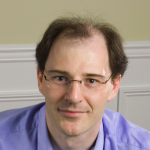Microsoft 4Afrika – To fast-track their growth and provide a roadmap to highlight Africa’s ‘future growth pole’, Microsoft has revealed the 7 new African start-ups to receive funding, technical support and mentorship. According to Microsoft, one of the goals of the Microsoft 4Afrika Initiative is to accelerate African innovation, ensuring that entrepreneurs continue to grow their businesses and solutions. In turn, they will create jobs, encourage skills development and grow the continent’s knowledge economy. – link
UK: Forging Futures: the next step for skills – link
IT is crucial to Qatar’s knowledge economy index ranking – link
Bulgaria needs an economy of knowledge – link
Iran in the knowledge economy era – link
Saudi Arabia – Minister of Education Prince Khaled Al-Faisal announced here recently that the ministry is in the process of equipping 250,000 classrooms and teachers with Internet connectivity, computers and tablets as part of a long-term investment in developing a knowledge economy. … Mohammad Al-Suwaiyel, president of King Abdulaziz City for Science and Technology, said the national strategy on science, technology and innovation would transform the Kingdom into a knowledge economy. The first stage of the plan is self-accountability and establishing a solid structure for development and research, he said.
Minister of Economy and Planning Mohammad Al-Jasser echoed this view and said that the changes in the education system would be accompanied by an overhaul of some economic policies, with a focus on innovation and investment in advanced technologies. – link
Iran – TEHRAN (FNA)- Iranian Vice-President for Women and Family Affairs Shahindokht Molaverdi underscored the necessity for paying special attention to the development of knowledge-based economy in Iran. Change in approach towards the natural resource-based economy to the knowledge-based economy is necessary, Molaverdi said on Wednesday, addressing a three-day seminar of women affairs’ advisors in Ministry of Industries, Mines and Trade in Tehran. link
Buffalo, NY – Citing a broader benefit, Canty noted, “It is NIH support of innovative research that is fueling a thriving knowledge economy in Western New York, an important piece of which will be the opening of University of Buffalo’s medical school …” link
University of Iowa – UI Vice President for Research and Economic Development Dan Reed [a former Microsoft exec] said public research universities are uniquely poised to take advantage of the emerging “knowledge economy.” “If knowledge is our most important engine of production, then talent is the raw material powering that engine,” Reed said. “Universities are the nation’s primary source of knowledge creation and its top cultivator of talent.” – link
